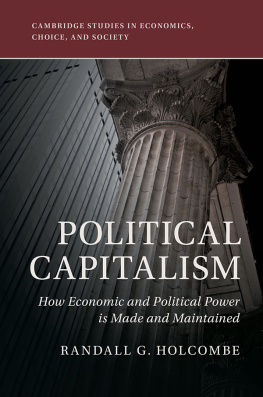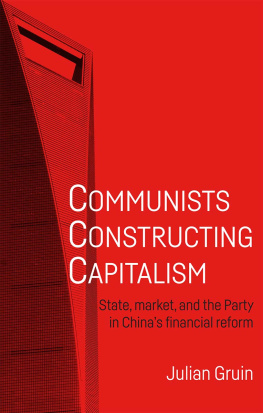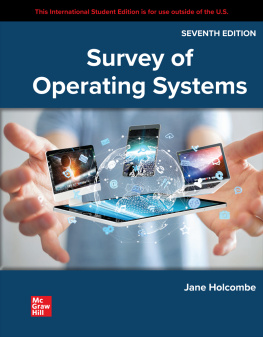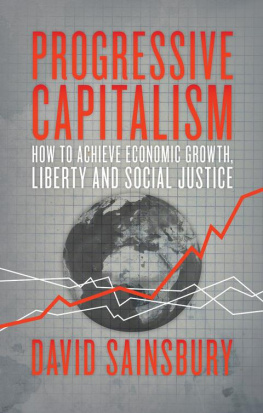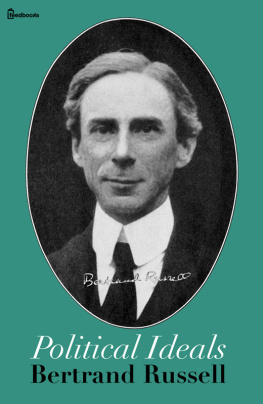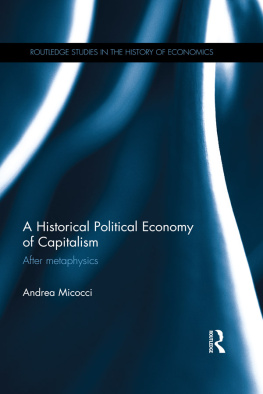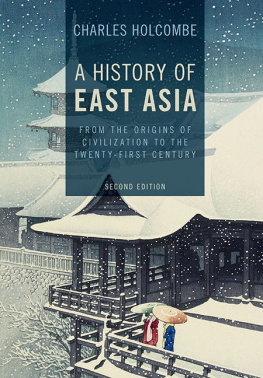Holcombe - Political Capitalism : How Political Influence Is Made and Maintained
Here you can read online Holcombe - Political Capitalism : How Political Influence Is Made and Maintained full text of the book (entire story) in english for free. Download pdf and epub, get meaning, cover and reviews about this ebook. year: 2018, publisher: Cambridge Univ Pr, genre: Politics. Description of the work, (preface) as well as reviews are available. Best literature library LitArk.com created for fans of good reading and offers a wide selection of genres:
Romance novel
Science fiction
Adventure
Detective
Science
History
Home and family
Prose
Art
Politics
Computer
Non-fiction
Religion
Business
Children
Humor
Choose a favorite category and find really read worthwhile books. Enjoy immersion in the world of imagination, feel the emotions of the characters or learn something new for yourself, make an fascinating discovery.
Political Capitalism : How Political Influence Is Made and Maintained: summary, description and annotation
We offer to read an annotation, description, summary or preface (depends on what the author of the book "Political Capitalism : How Political Influence Is Made and Maintained" wrote himself). If you haven't found the necessary information about the book — write in the comments, we will try to find it.
Holcombe: author's other books
Who wrote Political Capitalism : How Political Influence Is Made and Maintained? Find out the surname, the name of the author of the book and a list of all author's works by series.
Political Capitalism : How Political Influence Is Made and Maintained — read online for free the complete book (whole text) full work
Below is the text of the book, divided by pages. System saving the place of the last page read, allows you to conveniently read the book "Political Capitalism : How Political Influence Is Made and Maintained" online for free, without having to search again every time where you left off. Put a bookmark, and you can go to the page where you finished reading at any time.
Font size:
Interval:
Bookmark:

Political Capitalism
Problems associated with cronyism, corporatism, and policies that favor the elite over the masses have received increasing attention in recent years. Political Capitalism explains that what people often view as the result of corruption and unethical behavior are symptoms of a distinct system of political economy. The symptoms of political capitalism are often viewed as the result of government intervention in a market economy, or as attributes of a capitalist economy itself. Randall G. Holcombe combines well-established theories in economics and the social sciences to show that political capitalism is not a mixed economy, or government intervention in a market economy, or some intermediate step between capitalism and socialism. After developing the economic theory of political capitalism, Holcombe goes on to explain how changes in political ideology have facilitated the growth of political capitalism, and what can be done to redirect public policy back toward the public interest.
Randall G. Holcombe is DeVoe Moore Professor of Economics at Florida State University. Dr. Holcombe is also Senior Fellow at the James Madison Institute, a Tallahassee-based think tank that specializes in issues facing state governments. He served on Florida Governor Jeb Bush's Council of Economic Advisors from 2000 to 2006, and is past president of the Public Choice Society and the Society for the Development of Austrian Economics.
Timur Kuran, Duke University
Peter J. Boettke, George Mason University
This interdisciplinary series promotes original theoretical and empirical research as well as integrative syntheses involving links between individual choice, institutions, and social outcomes. Contributions are welcome from across the social sciences, particularly in the areas where economic analysis is joined with other disciplines such as comparative political economy, new institutional economics, and behavioral economics.
Political Capitalism
How Economic and Political Power Is Made and Maintained
Randall G. Holcombe
Florida State University


University Printing House, Cambridge CB2 8BS, United Kingdom
One Liberty Plaza, 20th Floor, New York, NY 10006, USA
477 Williamstown Road, Port Melbourne, VIC 3207, Australia
314321, 3rd Floor, Plot 3, Splendor Forum, Jasola District Centre, New Delhi 110025, India
79 Anson Road, #0604/06, Singapore 079906
Cambridge University Press is part of the University of Cambridge.
It furthers the Universitys mission by disseminating knowledge in the pursuit of education, learning, and research at the highest international levels of excellence.
www.cambridge.org
Information on this title: www.cambridge.org/9781108471770
DOI: 10.1017/9781108637251
Randall G. Holcombe 2018
This publication is in copyright. Subject to statutory exception and to the provisions of relevant collective licensing agreements, no reproduction of any part may take place without the written permission of Cambridge University Press.
First published 2018
Printed in the United States of America by Sheridan Books, Inc.
A catalogue record for this publication is available from the British Library.
Library of Congress Cataloging-in-Publication Data
Names: Holcombe, Randall G., author.
Title: Political capitalism : how political influence is made and maintained / Randall G. Holcombe, Florida State University.
Description: Cambridge, United Kingdom ; New York, NY : Cambridge University Press, 2018. | Includes bibliographical references
Identifiers: LCCN 2018006517 | ISBN 9781108471770
Subjects: LCSH: Capitalism Political aspects. | Power (Social sciences)
Classification: LCC HB501 .H55 2018 | DDC 330.12/2dc23
LC record available at https://lccn.loc.gov/2018006517
ISBN 978-1-108-47177-0 Hardback
ISBN 978-1-108-44990-8 Paperback
Cambridge University Press has no responsibility for the persistence or accuracy of URLs for external or third-party internet websites referred to in this publication and does not guarantee that any content on such websites is, or will remain, accurate or appropriate.
For Lora, Ross, Mark, and Connor
The Industrial Revolution, which began in the mid-1700s, brought about the largest ever increase in the material well-being of mankind. Prior to the Industrial Revolution, most people barely scraped by at a subsistence level of existence. As Thomas Robert Malthus noted, the size of the population was regulated by its ability to produce enough food to support itself, and starvation was a constant threat. In the twenty-first century, people who live in capitalist economies are more concerned about obesity than starvation, and even those below the poverty level enjoy amenities unimaginable a few decades earlier, such as mobile phones, microwave ovens, flat-screen televisions, and indoor plumbing. People who live in economies that are primarily market-oriented enjoy high standards of living, while those who do not are much poorer. Judged by its ability to produce material well-being, capitalism is an undeniable success.
Capitalism has its critics who point to periodic failures such as the Great Depression and the financial collapse that began in 2008, and, more generally, depict it as a system that leads to income inequality and allows some to use their privileged positions within the economic system to gain advantages over others. Regarding these more general criticisms, capitalism is well named, because it is the ownership of capital that conveys advantages to the economic elite. Capitalism, as an economic system, has taken the bulk of the criticism for the cronyism and favoritism that allows some to exploit the system for their own benefit.
Font size:
Interval:
Bookmark:
Similar books «Political Capitalism : How Political Influence Is Made and Maintained»
Look at similar books to Political Capitalism : How Political Influence Is Made and Maintained. We have selected literature similar in name and meaning in the hope of providing readers with more options to find new, interesting, not yet read works.
Discussion, reviews of the book Political Capitalism : How Political Influence Is Made and Maintained and just readers' own opinions. Leave your comments, write what you think about the work, its meaning or the main characters. Specify what exactly you liked and what you didn't like, and why you think so.

